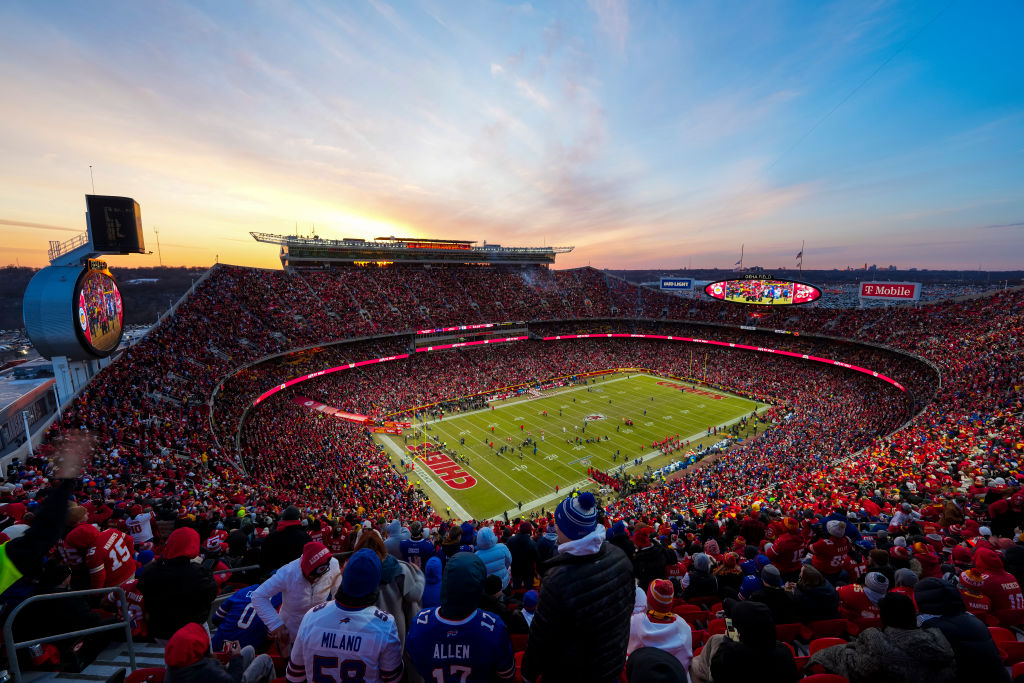Ten years on: What I learned from being part of Arsenal’s deal for Andrey Arshavin
It was the transfer that so nearly never was: a decade ago, the Gunners needed a meteorological miracle to sign the Russian dynamo. Somehow, they got it – as Jonny Blain, who helped work on the deal, recalls...
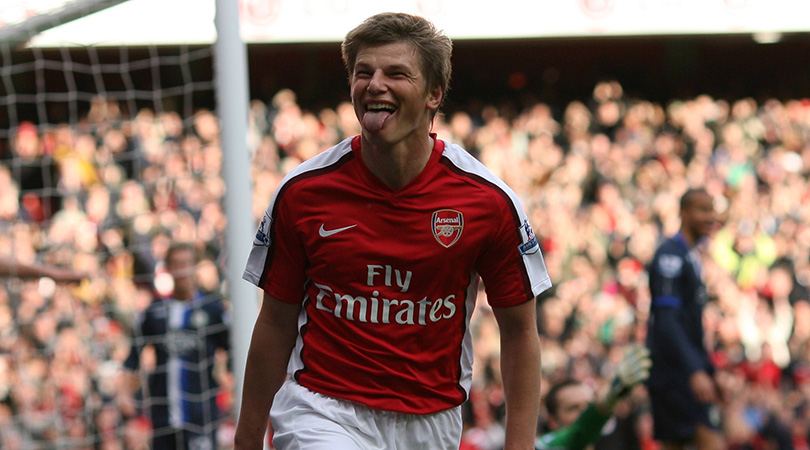
I've never seen a person take so long to buy toothpaste.
I knew this was someone who’d been involved in one of the most high-profile, convoluted transfer sagas in English football, but what I saw in this multi-million-pound professional footballer was more of an excited foreign exchange student who wanted to do all the things he never could back home.
For a few days in February 2009, this was my job – looking after Arsenal’s new club record signing as he settled into his new surroundings. The club had arranged for him to stay at the Sopwell House hotel just a few minutes from their training ground at London Colney, and I was tasked by my agency to make sure he had everything he needed.
Andrey was excited by everything. He would ask how things were pronounced, then chuckle away to himself at the answers. He told me that he loved trampolining on his bed with his kids, and that growing up his English team was… well, Tottenham.
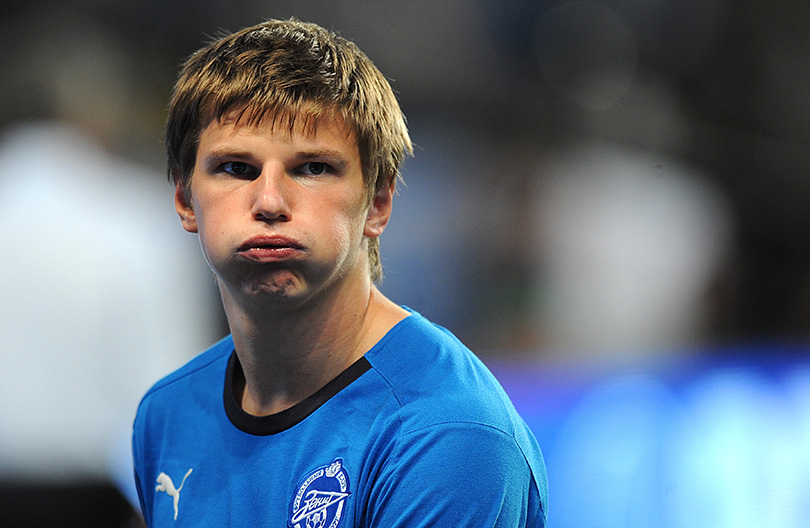
We spent the first few days in St Albans buying the necessary things one needs to survive in a hotel room alone, and drinking hot chocolate which he insisted I had to pay for. But there were no airs and graces with him; he never refused a photo or autograph from those who spotted him, although because he was so 'normal', he wasn't really recognised that much anyway.
Seeing him there like that, it was easy to forget just what a monumental effort it had been getting him to Arsenal in the first place.
Brick walls
The best features, fun and footballing quizzes, straight to your inbox every week.
Working for a football agency, like any job, has its ups and downs. But being a football obsessive in his late-twenties, it was fascinating to see the inner workings of clubs and how transfers really worked.
I’d witnessed big deals, small deals, ones that should have happened, and others that were never going to happen – but Andrey’s will always stick in my mind.
In the summer of 2008, Tottenham had been linked with a move for Zenit’s Russian playmaker who'd just helped his national team to the semi-finals of the European Championship.
Juande Ramos had identified Arshavin as the man to bring some glory back to White Hart Lane, but frustrations quickly began to grow as the price tag – which had scared off Barcelona and forced them to turn attentions towards Alexander Hleb – became too high for Daniel Levy. Arshavin had publicly stated his desire to move to London, and admitted his frustration that Zenit’s valuation had ‘frightened’ Spurs off.

Just a few months later, north London again came calling for Arshavin; this time Arsenal, with the assistance of First Artist, the agency where I worked in a player liaison role. Early meetings with his agent Dennis Lachter had led to positive discussions between the club and player, but as 2008 turned into 2009, negotiations were ramped up.
But, just as their local rivals had discovered, Arsenal weren't going to find negotiations easy either. To begin with, Arshavin and the club couldn’t agree personal terms. The Gunners sat behind Aston Villa in the Premier League table outside of the Champions League places, and needed an injection of quality. They returned with several better offers and seemed to have finally struck a deal with the player and his agent in early January. But the worst of the frustrations were yet to come.
Most days in the office seemed to consist of lengthy discussions behind closed doors. I’d get bits of information from frustrated bosses and other members of the team, and it soon became clear that dealing with Zenit was extremely difficult. Ultimately, it was why Tottenham had given up altogether.
Once their coach Dick Advocaat had agreed to let his star attraction go, permission was required from the next rung up the ladder; in this instance the sporting director, who didn’t want to let his best player leave easily. Once he was convinced – and that would take days – it was time to ask the club president. That too took a number of days until his blessing was finally received... but even that wasn’t enough.
One afternoon in late January, most of the major influencers in the deal congregated in the office. I was convinced that meant a deal was close. It transpired, however, that another hurdle was becoming difficult to clear – this time in the shape of energy giants Gazprom, who’d taken a controlling stake in Zenit in December 2005. More frantic phone calls and waiting games ensued, and as deadline day approached, the atmosphere was tense.
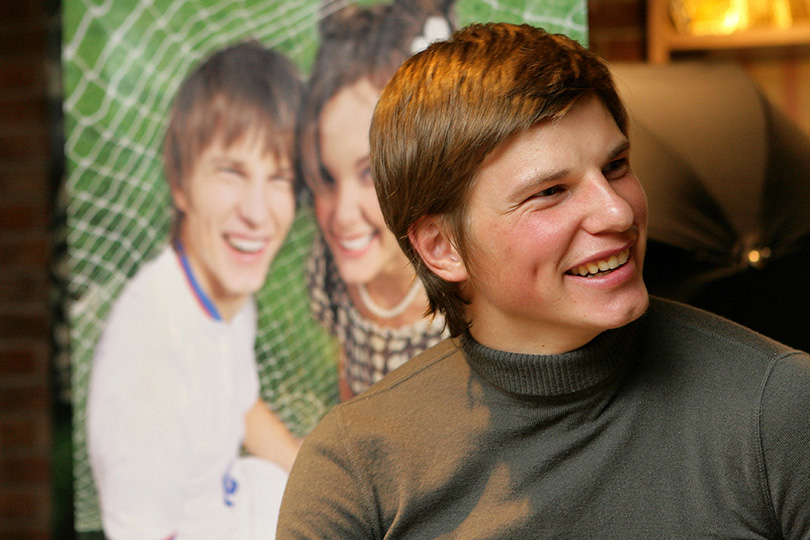
Tense times
Despite having no financial gain to make from the deal, I felt emotionally involved. It had engulfed my working life for almost three months, and to see it collapse before the finish line would have been immensely frustrating. For those who’d invested so much time and effort into achieving a successful outcome, a failure so late in the day would have been disastrous.
Little did they know that they were about to get a helping hand.
On the afternoon of Sunday February 1, just 24 hours before the window closed, I was at a wedding in central London constantly checking my phone to see if any positive news on the deal had broken. It hadn’t, and all parties were still locked in talks.
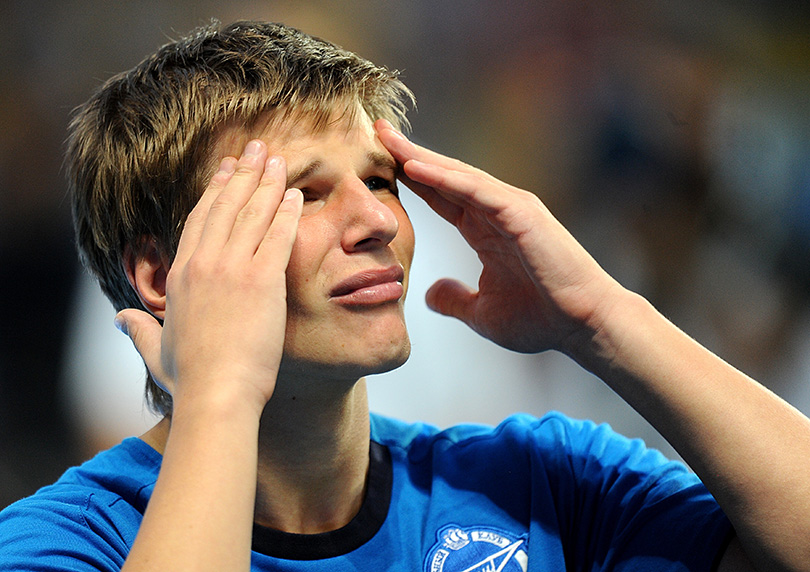
What Arsenal needed was more time – and remarkably, what Arsenal got was more time. It had started to snow. Like, proper snow. Snow that even threatened to prevent footballers joining new clubs. Snow that ultimately led to the Premier League agreeing to ratify any deals that were delayed because of it.
Finally on February 3, nearly 24 hours after the deadline and months after discussions first took place, Andrey Arshavin was an Arsenal player. And that’s when I stepped in, told minutes later than I would be looking after him when he touched down in England.
Sadly there was no trampolining on the bed for him over the next few days, but he seemed happy enough with his new surroundings in those early days of humorous translations and free hot chocolate.
My involvement with Andrey ended towards the end of February once he moved out of the hotel and his family arrived in London. He would go on to make 144 appearances for Arsenal, scoring 31 goals, including all four in a 4-4 draw against Liverpool at Anfield in April 2009 – his finest hour for Arsene Wenger’s side.
I left the company in the summer of 2009, taking with me the memories of transfers at all levels around the world. While some have become distant, I will never forget the deal that nearly melted in the snow.

